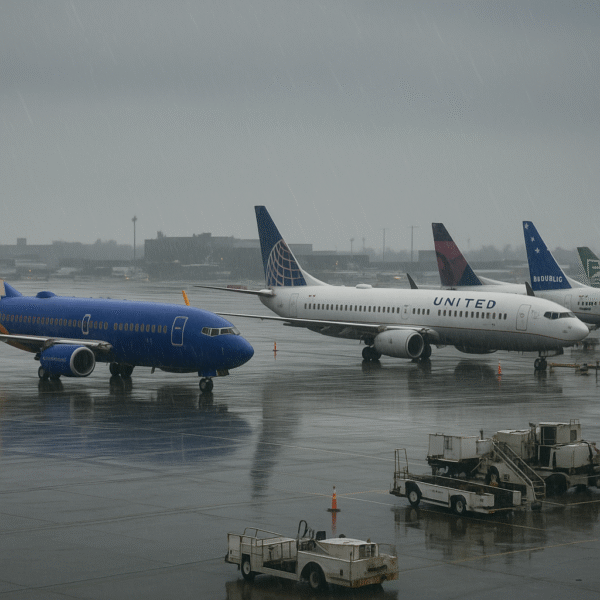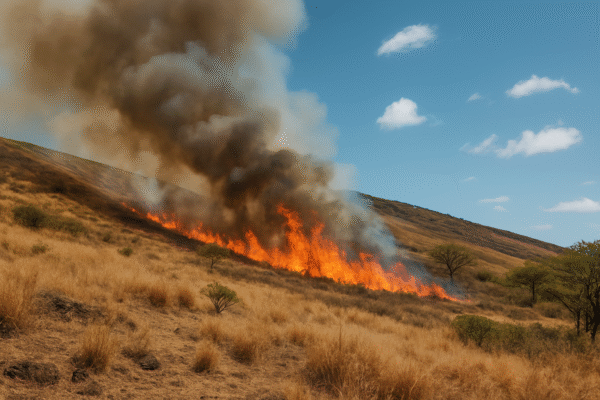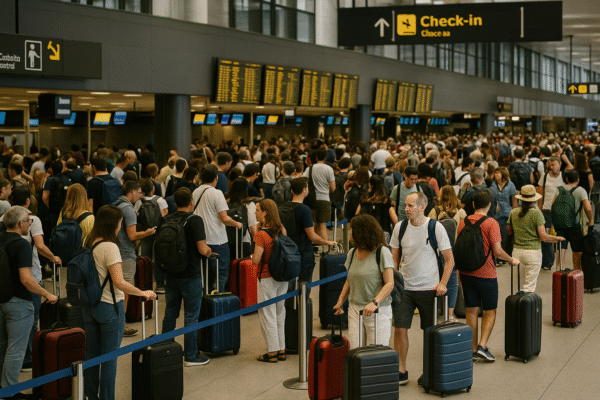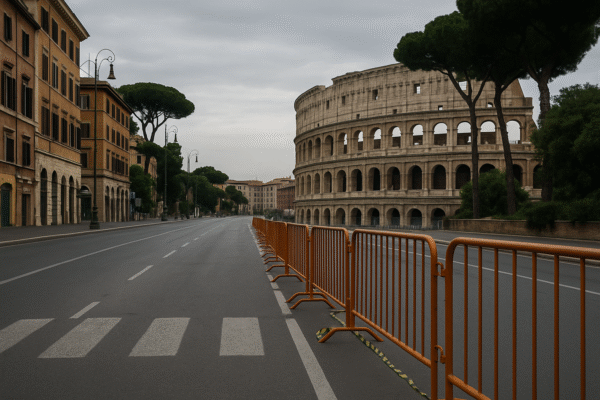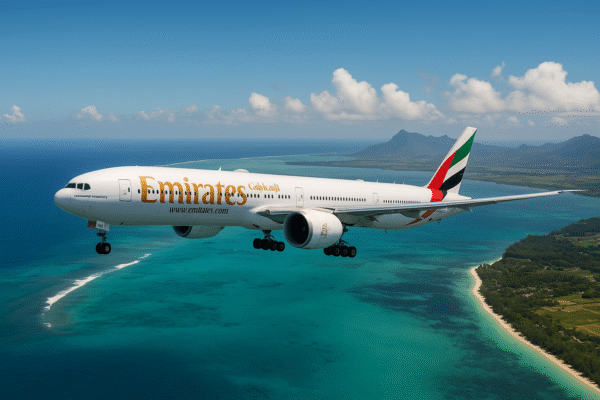The global tourism industry is weathering a wave of declining confidence in Q2 2025, with countries from Thailand to Spain and Brazil facing significant drops in traveler sentiment. According to the Tourism Council of Thailand (TCT), Thailand’s tourism confidence index has fallen to 70, a sharp decline from 83 in Q1 and far below the pre-pandemic baseline of 100. The trend mirrors global patterns, as economic fragility, geopolitical instability, and safety fears dampen travel enthusiasm.
The downturn in confidence spans Thailand, Spain, Italy, Greece, Japan, Mexico, the UK, Australia, Indonesia, South Africa, and Brazil — a mix of both mature tourism markets and developing travel economies.
Economic Pressures Driving Global Travel Anxiety
One of the dominant causes behind the slump is the ongoing global economic crisis. Countries across Europe, particularly Spain, Italy, and Greece, are grappling with stubborn inflation, rising interest rates, and sluggish post-COVID recovery. With the EU’s tourism-dependent economies still struggling to attract long-haul travelers, the preference is shifting toward shorter-haul, budget-friendly options.
Meanwhile, the U.S.’s ongoing retaliatory tariff policies are further straining international trade and travel budgets. This economic uncertainty is making tourists, particularly from middle-income brackets, more cautious about how far they travel and how much they spend.
In Mexico and Brazil, where tourism forms a vital part of GDP, reduced international arrivals are cutting deep into tourism revenue streams, affecting hotels, guides, restaurants, and local businesses. In Brazil’s Rio de Janeiro and Mexico’s Riviera Maya, once-booming tourism hubs are now reporting double-digit drops in hotel occupancy and guided tour bookings.
Safety Concerns and Political Instability Worsen the Outlook
Safety concerns are compounding economic woes, particularly in Southeast Asia, where a recent high-profile kidnapping of a Chinese actor in Myanmar has raised alarms for neighboring destinations like Northern Thailand. Tourism from China—previously a vital source market—has slowed considerably as a result.
Elsewhere, Turkey and South Africa continue to grapple with political unrest, social protests, and occasional violence, all of which negatively influence visitor perceptions. In Italy and Greece, frequent strikes and anti-government demonstrations have disrupted services and dampened tourism demand, especially in major cities like Rome and Athens.
According to the European Travel Commission, security and political stability are now among the top three considerations for European and North American travelers in 2025, along with cost and climate risks.
Regional Disparities in Tourism Confidence in Thailand
In Thailand, confidence levels vary by region. The South and North, traditionally favorites for international travelers, have suffered the most significant drops. The East (78) and West (73), being more accessible to domestic travelers and close to Bangkok, have fared better due to rising internal travel.
Hotel occupancy in Thailand has dropped to 48%, with the entertainment sector reporting the lowest confidence index at 60. This reflects both declining international arrivals and ongoing scrutiny of Thailand’s nightlife sector by locals and authorities alike.
Tourism Resilience in Australia and Indonesia
Despite global headwinds, Australia and Indonesia have found limited relief through domestic tourism. Australia’s world-renowned natural sites, such as the Great Barrier Reef and Uluru, continue to attract internal and regional travelers. Bali and Java in Indonesia also remain popular for ASEAN travelers, although international numbers have softened.
According to Tourism Australia, while inbound numbers from Europe and North America are below 2019 levels, interstate travel and regional events are helping sustain local tourism operators.
Industry-Wide Struggles in Hospitality and Entertainment
Across most affected countries, the hospitality and entertainment industries are bearing the brunt of reduced traveler confidence. Hotels in Greece, Mexico, and Spain are failing to reach target occupancy, while leisure attractions in Italy, including museums and historical sites, are reporting revenue declines of up to 35% year-on-year, according to Italy’s Ministry of Tourism.
In Japan, traditionally a high-value tourism market, the weak yen has encouraged some regional travel, but overall international spending remains subdued. The Japan National Tourism Organization (JNTO) has noted a decline in Western long-haul bookings due to safety concerns in Asia and Europe.
Policy Responses and the Road to Recovery
Governments and tourism boards are mobilizing resources to reverse the downturn. In Thailand, the TCT is urging the Tourism Authority of Thailand (TAT) to implement domestic travel subsidies, especially for inter-provincial transport operators and small-scale tourism enterprises.
Greece, Mexico, and Spain have rolled out targeted marketing campaigns aimed at nearby regional markets and the diaspora. These include discounted travel packages, increased airline capacity for domestic routes, and collaborations with online travel agencies for visibility.
Experts say restoring confidence in safety and economic stability will be key to a global recovery in Q3 and Q4 of 2025. However, the pace of revival will heavily depend on geopolitical developments, including Russia-West relations, the status of conflicts in Southeast Asia, and inflation control efforts globally.
Conclusion: A Fragile Future, But Not Without Hope
The global tourism industry faces a fragile 2025, but not an irreversible one. As governments double down on domestic travel support and safety measures, and international collaborations push for a more resilient tourism model, confidence could begin to rebuild.
Restoring traveler trust will take sustained effort, clear safety messaging, and inclusive recovery plans that prioritize not just economic gains but also long-term tourism sustainability.
For more travel news like this, keep reading Global Travel Wire






